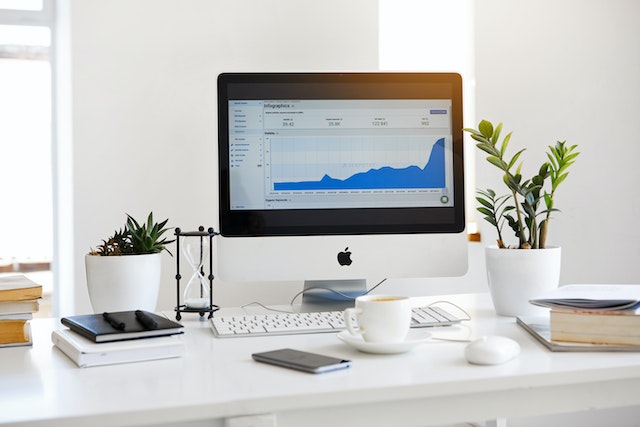Effective Bookkeeping Strategies for Small Business Success. Bookkeeping is an...
Read More
Top Tips For Business Owners To Organise Their Accounts
The new financial year is here and it’s time to make sure you are ready.
Here is my checklist for things you should get right now:
1. Do You Have Accounting Software Set Up?
Sometimes sole traders and small business owners think they don’t need accounting software.
They think that because their business is just starting, and they don’t make a lot of sales there is no need for accounting software. They are also cautious of paying for anything, especially if it’s a subscription that requires ongoing payments.
But your accounts are the heart of your business, and you need to get them right. I work with Xero, MYOB and QuickBooks, and subscriptions can be as low as $22 per month.
When you think about how accounting software can save you valuable time and help you understand your business, it’s worth spending this money. And the new financial year is a great time to start.
2. Do You Have Your Products Or Services Set Up Properly?
Most businesses have products or services with standard pricing. Setting these up in your accounting software will help in several ways:
- You can create quotations and invoices quickly and easily.
- You can run reports to see where you are making money. Some of your products and services will be more profitable than others.
3. Is Your Chart Of Accounts Up To Date And Right For Your Business?
Your chart of accounts is how you analyse your business.
You want to know where your income is coming from and where money is going out of the business.
When you set up your chart of accounts properly for your business, you can run a report at the click of a button.
For example:
- If you run a home baking business, you might want to compare sales of savoury or sweet items so you can focus on what makes most money for you
- If you run a cleaning business, you could compare domestic and commercial cleaning for the same reason
- Understanding how much you are spending with each supplier can help you manage costs
- You can compare cost and results from different advertising channels, such as Google and Facebook
4. Do You Know How To Run Useful Reports To Understand Your Business?
The most important report which every business owner should know about is the profit and loss report. This lets you see how your business is doing overall – are you making money, and how much?
After that, it depends what area you want to dive deeper into.
If you want to look at where you make the most money, you can run reports by product and service category, or by customer. Sometimes a customer who pays you for many small jobs can be more profitable than a customer with a few larger jobs. Reports can help you see this.
If you want to look at where you are spending money, the first stage is to look at what kind of expenses you have. Then after that you can run reports by supplier to drill down and analyse these expenses.
Reports will allow you to see how your business is changing over time.
A thoughtfully designed chart of accounts and basic reports give you extensive knowledge about your business. It only takes a few hours to set this up, and the start of the new financial year is an ideal time to do it.
5. Have You Set A Regular Schedule To Get Your Books Up To Date?
Many sole traders and small business owners don’t like doing the books. They find it intimidating and confronting so they put it off.
Actually, if you do your books more often, there are a lot of advantages.
- There are less transactions to reconcile, so it’s less intimidating.
- Practice makes perfect – you learn how to use the software efficiently and it becomes easier and faster.
- When you reconcile recent transactions, you can remember what they were for, so it’s a smooth process. If you don’t do your books regularly it takes longer to reconcile the transactions, let alone find the receipts to attach to them.
- Your books are up to date with clients who paid you.
For example, if a client has paid, but you don’t reconcile your books, the software doesn’t recognise the payment. Any automatic reminders you have set up will be sent to your clients, even though they have already paid. That’s embarrassing, and poor customer service.
Another thing, if you’re registered for GST, is that you must have everything recorded before you submit your BAS.
So set a regular time to do your books!
How often you need to do this depends on your business. If you have one or two big clients and you sell your services, so you don’t have lots of expenses, you can do it weekly or even monthly. The most important thing is to do it regularly!
So, those are 5 things to consider about getting your accounts set up for the new financial year. None of them take long, and if you need someone to hold your hand, I’m happy to help!
In summary
So, those are 5 things to consider about getting your accounts set up for the new financial year. None of them take long, and if you need someone to hold your hand, I’m happy to help!
Related articles
Cash vs Accrual Accounting Methods Explained
As a business owner, the way you monitor your business's...
Read More
